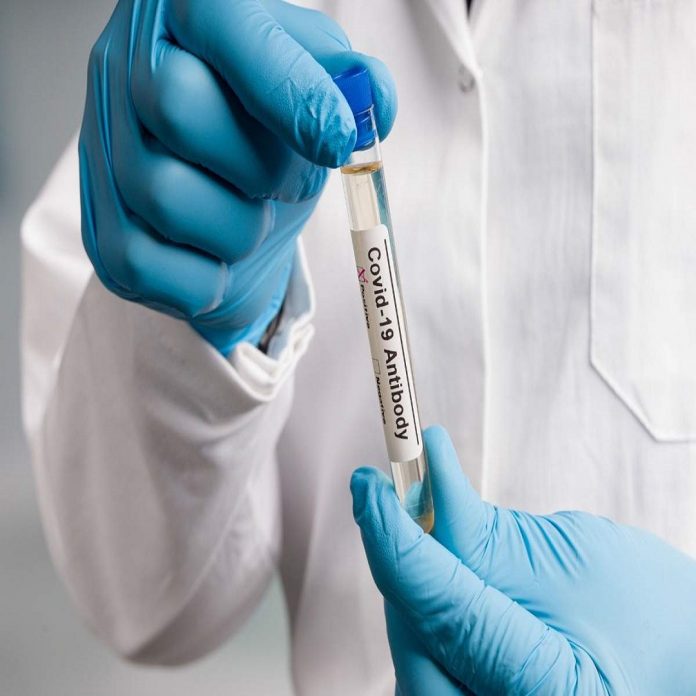According to the findings, the first shot primes the immune system, allowing it to begin producing antiviral antibodies. The stronger the reaction to the second booster shot, the longer the response is allowed to mature.
Faced with a scarcity of vaccines and nervous people waiting in line, more countries are turning to a once-controversial tactic that has now been proven by scientific studies: doubling or tripling the time between the first and second Covid vaccine doses.
Delaying the second shot not only helps the current supply of shots to be spread more widely but also increases the defensive power of the first inoculation by allowing the immune system more time to react to it. According to new research, levels of antibodies developed to combat the virus are 20 percent to 300 percent higher when the follow-up vaccine is given later.
That’s good news for places like Singapore, which is dealing with an unusual, but minor, increase in cases following last year’s successful containment of the virus. To meet a target of covering the entire adult population with at least one shot by the end of August, the city-state is now expanding dose periods from three to four weeks to six to eight weeks. India, which is dealing with a massive outbreak, recommends waiting 12 to 16 weeks between shots.
Other countries in similar situations, such as those with few vaccine doses and agitated people, are likely to follow suit.
“If I could, I’d press a button that said, ‘Right now, this second, we send one dose to anyone we can reach,’” she says “Gregory Poland, a virologist, and director of the Vaccine Research Group at the Mayo Clinic. “We’ll get to the second doses later,” says the narrator.”
“In a world on fire, you put out as many fires as you can, as soon as you can,” Poland said.
When the vaccine rollout began at the end of 2020, there was no reassuring data on longer dosing periods. Then, countries restricted their use to the most at-risk individuals, ensuring that a second shot was ready for them. During a major outbreak in late 2020, the UK was the first to abandon those restrictions, a decision that was initially criticized but has since proven to be prescient.
ALSO CHECK: Get a tremendous discount with Flipkart Coupons and The Man Company Coupons
According to the findings, the first shot primes the immune system, allowing it to begin producing antiviral antibodies. The stronger the response to the second booster shot, which comes weeks or months later, the longer the response is allowed to mature.
Longer dose cycles have been shown to favor all forms of vaccines.
People over the age of 80 who received a strong mRNA vaccine from Pfizer Inc. and BioNTech SE had a 3.5fold higher antibody response if the second shot was administered three months rather than three weeks after the first. Other research found that delaying the final shot for nine to 15 weeks reduced hospitalization infections and deaths, while a Canadian study found that a six-month wait provided the greatest benefit.
There are some disadvantages. Because of the longer time between doses, countries may have to wait longer to protect their populations. Although one shot provides some protection, people aren’t completely immunized until several weeks after receiving their second dose.
When less potent vaccines are used or more transmissible virus forms are circulating, the period is especially harmful.
Some nations are testing the limits. India’s three- to the four-month gap between doses, one of the world’s longest, means that those rushing to get vaccinated during the current outbreak won’t be completely covered until the summer or fall.
Though studies indicate a 12-week interval between AstraZeneca shots is ideal, there is little information on the effect of increasing the interval to 16 weeks. In India, the British drugmaker’s vaccine now accounts for the vast majority of vaccinations.
The long wait may also make it more difficult to persuade millions of people to return to finish the series, particularly if they believe they already have some coverage from the first clip. People in developed countries are still finding it difficult to return due to transportation and communication issues.
“It’s difficult logistically when you have a two-dose schedule,” she says “Gigi Gronvall, a senior scholar at the Johns Hopkins Bloomberg School of Public Health’s Center for Health Security, agreed. “You’re worried about whether or not people can return for a second shot, or whether you’ll lose them completely.”
Many places are willing to make this tradeoff, particularly given the scarcity of vaccines. Officials hope to offer the first dose to around 4.7 million people by the end of the summer, thanks to a new strain first found in India and now spreading in Singapore.
We’re already vaccinating 40,000 people a day, so you can figure out how long it will last “Dale Fisher, a professor of infectious diseases at the National University of Singapore, agreed. “And that’s a pretty rigid pipeline,” says the narrator. It’s not like you can simply place another order.”
Several hundred thousand people would receive their first injection earlier as a result of delaying the second dose, he said.
“We’re confident that there are no drawbacks to this.”



